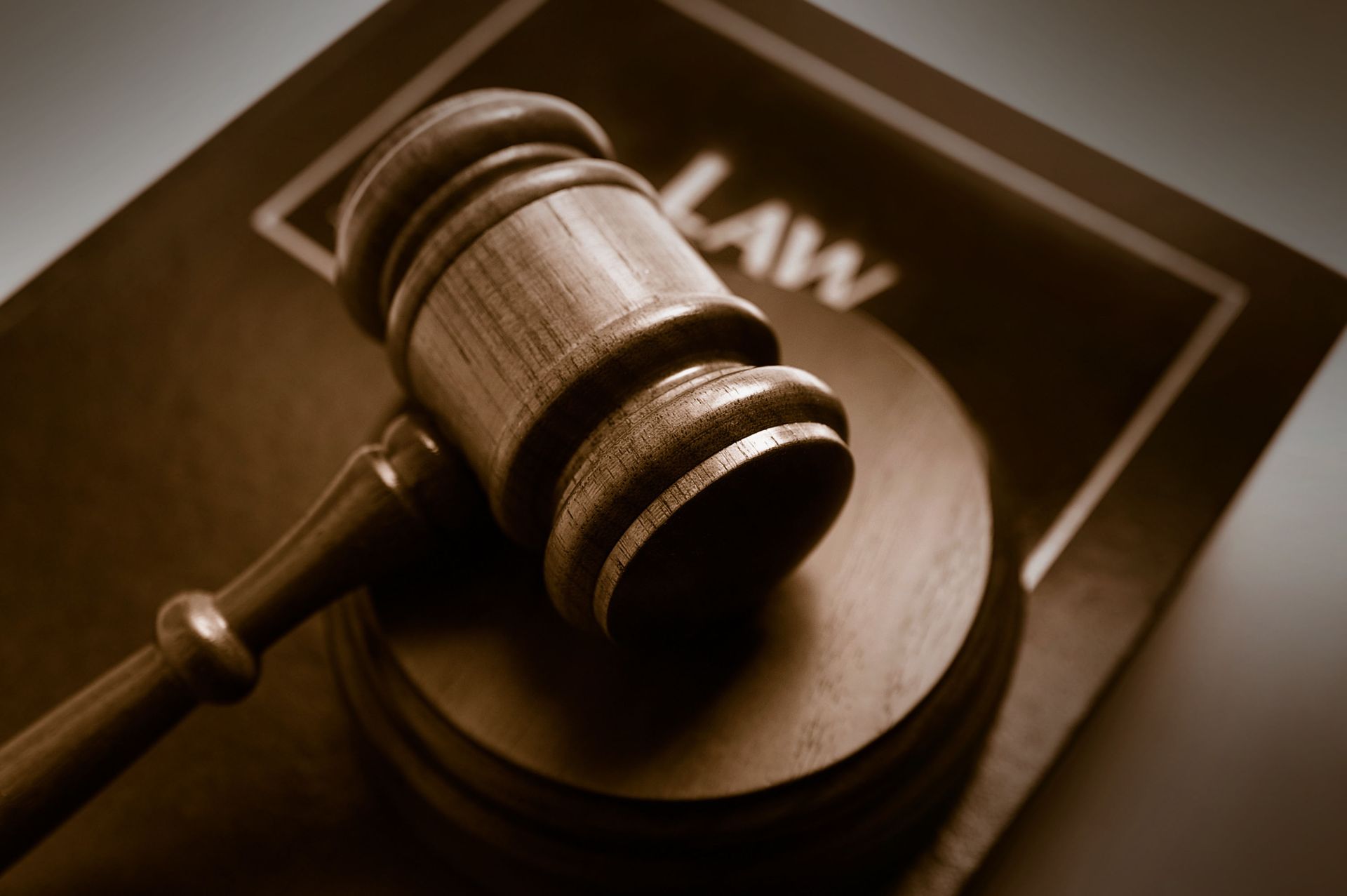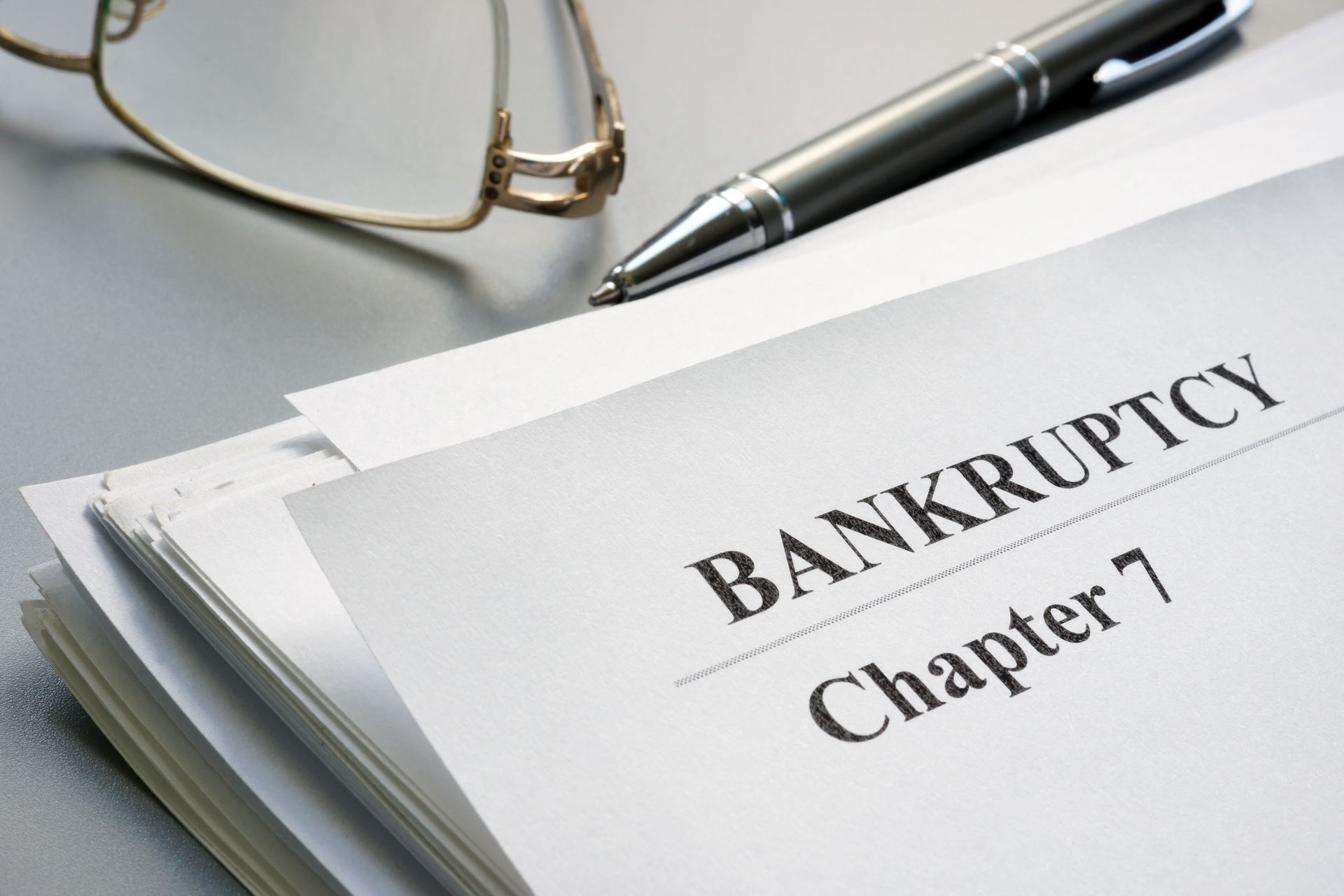Chapter 7 vs. Chapter 13: Which Bankruptcy Filing Is Right for You?
When facing overwhelming debt, filing for bankruptcy may offer a pathway to financial relief. However, deciding whether to file for Chapter 7 or Chapter 13 bankruptcy can be a daunting decision. Each option has distinct advantages and requirements, and choosing the right one depends on your unique financial situation. Understanding the differences between Chapter 7 and Chapter 13 bankruptcy can help you make the most informed choice for your future.
Understanding Chapter 7 Bankruptcy
Chapter 7 bankruptcy, often referred to as "liquidation bankruptcy," allows individuals to discharge most unsecured debts, such as credit card bills and medical expenses. This type of filing involves the liquidation of non-exempt assets to pay creditors. While this can offer a fresh start, it can also mean the loss of property depending on your state’s exemption laws. However, many people who file for Chapter 7 do not lose significant assets, especially if they have little non-exempt property. Chapter 7 is typically quicker than Chapter 13, often taking just a few months to complete.
If you are eligible for Chapter 7 bankruptcy, your debts will likely be discharged without the need for repayment plans. This makes it an ideal option for individuals with minimal income and few assets. The process involves a "means test" to determine eligibility based on your income, and those with higher incomes may not qualify. Bankruptcy attorneys can assist you in determining whether Chapter 7 is the right fit for your financial circumstances and can help guide you through the process efficiently.
Understanding Chapter 13 Bankruptcy
Chapter 13 bankruptcy is often referred to as "reorganization bankruptcy." Unlike Chapter 7, Chapter 13 allows individuals to keep their property while repaying a portion of their debts over a three- to five-year period. This repayment plan is based on your income, expenses, and the amount of debt you owe. Chapter 13 can be particularly beneficial for those who have a steady income but are struggling to pay down large amounts of debt. It enables individuals to restructure their debt while maintaining their assets, such as their home or car, which could be at risk under Chapter 7.
The repayment plan in Chapter 13 allows you to catch up on missed payments, potentially lowering your monthly payments and making debt repayment more manageable. However, the process is longer and more complex than Chapter 7. It requires detailed documentation, and the court must approve your repayment plan. Bankruptcy attorneys play a crucial role in ensuring that the plan is properly structured to meet legal requirements and your personal financial needs.
Key Differences Between Chapter 7 and Chapter 13 Bankruptcy
The most significant difference between Chapter 7 and Chapter 13 is how your debts are handled. Chapter 7 focuses on the liquidation of assets to discharge debts, while Chapter 13 is centered on restructuring and repayment over time. Additionally, eligibility for Chapter 7 is determined by a means test, which looks at your income and expenses. In contrast, Chapter 13 requires a steady income to create a feasible repayment plan. The length of the bankruptcy process is also a key difference, with Chapter 7 being completed in a few months and Chapter 13 lasting several years.
For those who want to protect their assets, Chapter 13 may be the better option, as it allows you to keep your home and car. However, it does require regular payments to creditors, which can be difficult if your income is unstable. Chapter 7, on the other hand, is suitable for individuals with limited assets and income, who want to discharge unsecured debt quickly without worrying about a long repayment period.
Which Bankruptcy Filing Is Right for You?
Choosing between Chapter 7 and Chapter 13 bankruptcy depends largely on your financial situation. If you have significant assets that you cannot afford to lose and a steady income, Chapter 13 may be your best option. It allows you to keep your property while working out a manageable repayment plan. However, if your income is low and you don’t have many assets, Chapter 7 could be the faster and more straightforward option, allowing you to discharge most of your debts without the burden of a repayment plan.
Consulting with bankruptcy attorneys is essential in making this decision. They can evaluate your unique situation, review your assets and liabilities, and advise on which chapter offers the most beneficial outcome. Bankruptcy attorneys understand the intricacies of both Chapter 7 and Chapter 13 filings and can guide you through the entire process, ensuring you make the most informed choice for your financial future.
The Impact of Bankruptcy Filings on Your Credit and Future Finances
One concern many individuals have when filing for bankruptcy is the potential impact on their credit score. While both Chapter 7 and Chapter 13 will significantly affect your credit score, the long-term impact varies. Chapter 7 bankruptcy typically remains on your credit report for up to 10 years, while Chapter 13 stays on for up to 7 years. However, many individuals who file for bankruptcy find that their credit improves after completing their case, as they are no longer burdened by overwhelming debt. Additionally, filing for bankruptcy provides an opportunity to rebuild your credit by following sound financial practices, such as paying bills on time and maintaining a low debt-to-income ratio.
While bankruptcy may initially lower your credit score, it can be a powerful tool for individuals looking to regain control over their financial future. After the discharge of debts or completion of a repayment plan, you can begin taking steps to rebuild your credit and financial stability. Bankruptcy attorneys can provide guidance on how to manage your finances after filing and help you take the necessary steps to restore your credit and improve your financial standing.
The Growing Trend of Bankruptcy Filings
The increase in the growing number of individuals facing financial challenges and the need for debt relief options highlights the importance of understanding the logistics. According to the United States Courts, bankruptcy filings rose 13.1 percent during the 12-month period ending March 31, 2025. While the reasons for the rise in bankruptcy filings vary, the increase in consumer debt and economic factors such as inflation and job loss have contributed to a surge in individuals seeking financial protection through bankruptcy. Many individuals are finding that filing for bankruptcy is a viable way to regain control of their finances and work toward a more secure financial future.
As the number of bankruptcy filings continues to rise, the role of bankruptcy attorneys becomes more important. They help individuals navigate the complexities of bankruptcy filings, ensuring that they make the right decisions and understand the potential consequences of each option. Whether filing for Chapter 7 or Chapter 13, bankruptcy attorneys provide the expertise necessary to guide you through the process and help you move forward with a clean financial slate.
What to Expect When Working with Bankruptcy Attorneys
When you decide to file for bankruptcy, working with experienced bankruptcy attorneys is essential. They will help you understand the filing process, gather the necessary documentation, and ensure that all legal requirements are met. From filing the petition to attending the meeting of creditors, bankruptcy attorneys handle the paperwork and legalities, ensuring that the process runs smoothly. They can also provide valuable advice on whether Chapter 7 or Chapter 13 bankruptcy is the best choice for your situation.
Bankruptcy attorneys will also represent you during the court proceedings and can negotiate on your behalf with creditors. This can help alleviate some of the stress and anxiety associated with bankruptcy filings. They will help you navigate the complexities of bankruptcy law and provide ongoing support as you work to rebuild your finances. Having a skilled bankruptcy attorney by your side can significantly improve your chances of achieving a favorable outcome and moving forward with your financial recovery.
Choosing between Chapter 7 and Chapter 13 bankruptcy can be a difficult decision, but with the right guidance, it is possible to make the best choice for your financial future. Each type of bankruptcy offers unique advantages depending on your circumstances, whether you need a quick discharge of debts or a structured repayment plan. Call Sam Henry IV Attorney At Law today to learn more.





Share On: